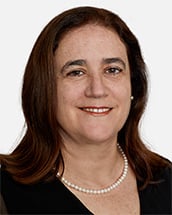In brief
Royal Decree 192/2023 on Medical Devices, which adapts Spanish national regulations to the provisions of Regulation (EU) 2017/745, was published on 22 March 2023. The new Royal Decree identifies the competent authority in Spain for medical devices, expands the scope of some of the provisions to new kind of products and introduces provisions regarding the manufacture of in-house products and the reprocessing of single-use products, among other significant changes.
In more detail
The new Royal Decree 192/2023, of 21 March 2023, which regulates medical devices (RDPS) complements the application of the provisions of Regulation (EU) 2017/745, on medical devices (MDR) in Spain. It replaces the provisions of Royal Decree 1591/2009 on medical devices and of Royal Decree 1616/2009 on implantable medical devices.
In accordance with the contents of the MDR, the scope of application of the provisions of the RDPS include certain products that are similar to medical devices due to their functioning and risks despite not having a medical purpose (Annex XVI of MDR and subject to the application of article 9 of MDR). In addition, the RDPS includes in its scope instruments used in permanent or semi-permanent make-up or skin tattooing by means of invasive techniques. Those shall comply with their own safety and operating requirements and shall not bear a CE mark, but their manufacture, importation, distribution and sale must meet the provisions established in the RDPS with regard to the prior license for the operation of facilities, as well as with the provisions on the distribution and sale of products. Likewise, the RDPS establishes the language regime and designates the Spanish Agency of Medicines and Medical Devices (AEMPS) as the competent authority regarding medical devices.
The RDPS updates the provisions regarding the granting of the prior operating license for the manufacture, importation, grouping or sterilization of medical devices, whose validity is now set at a maximum of five years. This licensing requirement shall also apply to devices and instruments used in permanent or semi-permanent make-up or skin tattooing by invasive techniques and to the non-medical products listed in Annex XVI of the MDR. The RDPS also clarifies that the import license is also needed to those that, without being considered importers for the purposes of the MDR, physically import products into Spain. Manufacturers of investigational products are not required to obtain the previously mentioned license, nor manufacturers of customized products, but the latter must register in a specific register through the AEMPS’ electronic website. Licenses already granted will need to be renewed or modified to adapt to the new requirements. Finally, the RDPS increases to ten years from the putting into the market of the last product the period during which the documentary file must be available to the authorities (fifteen, for implantable products).
In line with the MDR, the RDPS introduces the possibility for hospitals to manufacture single-use medical devices for their exclusive use. Hospitals shall, in accordance with MDR, communicate and make a declaration in order to initiate the manufacturing activity. This activity needs to be directly linked to the interest of a specific group of patients for whom there is no other alternative, and the manufacture shall not intended for subsequent marketing or economic benefit. Class IIb, Class III and implantable devices may not be manufactured by hospitals under the single-use medical devices exception, and their manufacturing is thus subject to the obligation to obtain a manufacturing license.
Also in line with the MDR, the RDPS introduces the reprocessing and reuse of single-use products rights. The new RDPS identifies which single-use products cannot be reprocessed, who can carry out reprocessing activities, the obligations of reprocessed product manufacturers and of hospitals carrying our reprocessing activities in their premises, the obligations of external reprocessors and the limitations on the use of reprocessed single-use products.
The new RDPS has also clarified, in accordance with the case law of the Court of Justice of the European Union, that medical devices requiring individual adjustments that are subject to successive deliveries may be sold by distance selling means, subject to verification of coincidence with the initial product sold and provided that the customer may have access to advise.
In addition to the above, a product Commercialization Registry will be set up. Until now, companies have been notified, through the electronic application of the AEMPS, the commercialization in Spain of IIa, IIb and III medical devices and active implantable medical devices. Under the new Commercialization Registry companies must register and communicate a number of data regarding the medical devices they will commercialize. However, the above obligation will not apply until this new Commercialization Registry is in place and, in the meantime, the provisions regarding the commercialization notification of medical devices under Royal Decree 1591/2009 shall remain applicable. Once the new Commercialization Registry is operational, the communication will need to be made within a period of six months since the product notification to Eudamed.
Finally, the RDPS includes specific provisions regarding the investigation and clinical studies with medical devices, which supersede any prior regulations.
For more information, you can access the downloadable version of the new RDPS via this link.





